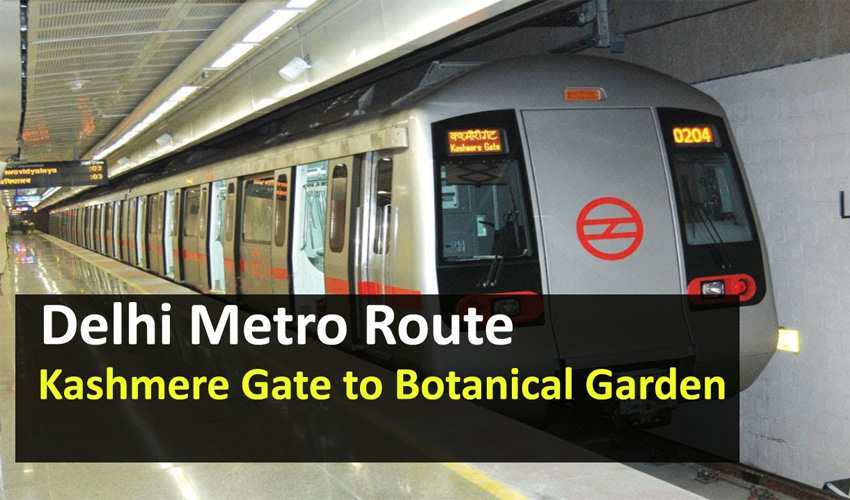The journey from Kashmere Gate Metro Station in Delhi to Botanical Garden Metro Station in Noida is a vital link between the historic heart of the national capital and the rapidly growing urban centers of Noida in Uttar Pradesh. Spanning approximately 19 kilometers by road, this route exemplifies the seamless integration of Delhi’s metro system with the expanding National Capital Region (NCR) transit network, offering commuters convenience, choice, and connectivity.
Distance and Travel Time
By road, the distance between Kashmere Gate and Botanical Garden is around 19 kilometers, which typically takes about 25 minutes by car or taxi under normal traffic conditions. The metro travel time is usually between 44 and 56 minutes depending on transfers, with multiple options for passengers to choose from based on cost, comfort, or speed.
Delhi Metro Route and Connectivity
Traveling by Delhi Metro is among the most popular and efficient ways to make this trip. Kashmere Gate Metro Station serves as a major interchange on three key metro lines: Red, Yellow, and Violet. Passengers heading to Botanical Garden generally take the Yellow Line from Kashmere Gate towards Mandi House, and then transfer to the Blue Line (or Magenta Line depending on route options) to reach Botanical Garden Station in Noida.
Typical Journey:
- Board the Yellow Line at Kashmere Gate towards Central Secretariat/Mandi House.
- Change at Mandi House station for the Blue Line or Magenta Line.
- Continue on the Blue Line towards Botanical Garden, Noida.
Fare: Metro fares for this trip generally range from ₹30 to ₹45.
Frequency: Trains run frequently, often every 10–15 minutes depending on the time of day.
This transit option makes the metro an attractive choice for daily commuters such as office workers, students, and tourists traveling between Delhi and Noida, ensuring timely and air-conditioned travel.
Other Transport Options
In addition to the metro, there are direct bus services operated by the Delhi Transport Corporation (DTC) from the ISBT Kashmere Gate bus terminal to Botanical Garden bus stop. Although these buses cover the route in approximately 1 hour and 15 minutes due to traffic and stops, they offer a budget-friendly option with ticket prices ranging between ₹14 and ₹150 depending on the bus service type (ordinary, air-conditioned, or express).
Taxis and app-based cab services provide a faster but costlier alternative, with travel times close to 19–25 minutes and fares typically ranging from ₹360 to ₹440.
Significance of the Route
This corridor is more than just a distance between two points; it is a critical lifeline connecting Delhi, with its rich historical fabric and administrative significance, to Noida, a major IT, industrial, and residential hub in Uttar Pradesh. Botanical Garden Metro Station notably serves as a key interchange for various Noida sectors and is instrumental for commuters heading to workplaces, educational institutions, and leisure destinations across the region.
Kashmere Gate itself is a historic transit nexus, with the Kashmere Gate Metro Station being one of Delhi Metro’s busiest interchanges, and the adjacent ISBT serving as a major platform for bus travel across northern India. This connectivity not only supports daily commuters but also bolsters regional economic activity and urban integration.
Travel Tips
- Metro travel is ideal during peak hours when road traffic congestion near ISBT and Noida is high.
- Off-peak travelers might prefer taxis or private vehicles for a quicker and direct ride.
- Bus enthusiasts or budget travelers can opt for the DTC buses, keeping in mind the longer travel time.
- Check metro and bus timings as frequencies may vary on weekends and holidays.
Conclusion
The Kashmere Gate to Botanical Garden route is a quintessential example of modern urban transit meshing history, convenience, and urban growth. Whether by the air-conditioned metro trains speeding through Delhi’s underground and elevated tracks, or by road through Delhi’s bustling streets and Noida’s planned sectors, this passage continues to play an essential role in daily commuting, economic exchange, and regional connectivity in the National Capital Region.
